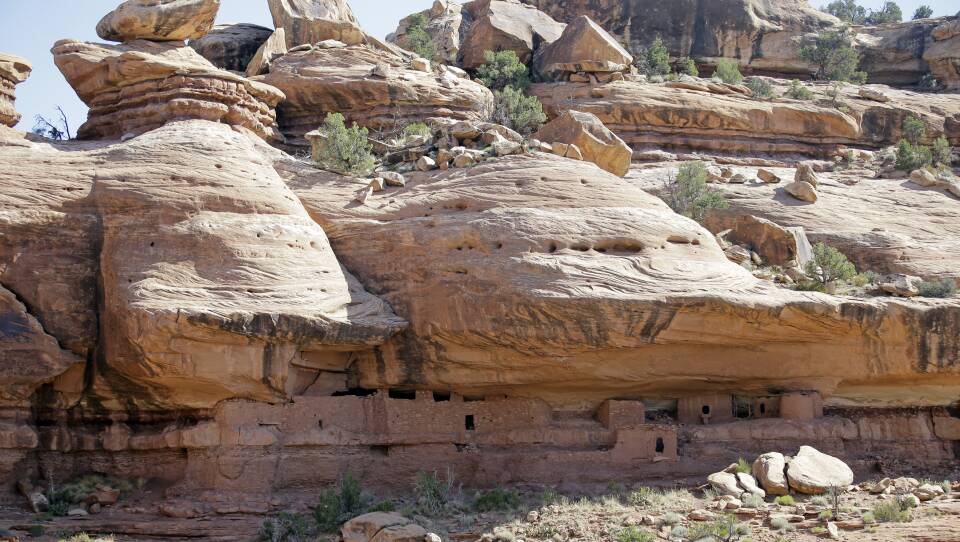Earlier this month, in the largest reversal of national monument protections in modern history , President Donald Trump announced he would reduce the size of the Bears Ears and Grand Staircase-Escalante in Utah by as much as 85 percent.
Richard Blanco, the nation's fifth presidential inaugural poet and author of the memoir "The Prince Of Los Cocuyos," says the move should make us think critically about mankind's relationship with nature. In his latest installment of "Village Voice," Boston Public Radio's recurring conversation about how poetry can help us understand the news of the day, Blanco discussed these themes as they appear in the poem "The Fish" by Elizabeth Bishop.
"Bishop's work teaches us or evokes for us a sense of reverence and awe in nature I think is parallel to how we should be treating these monuments," Blanco said.
In the poem, the narrator catches a big, sturdy fish, remarking that "he hadn't fought at all." But then she notices five other fish hooks embedded around its mouth, evidence of his past efforts to stay alive.
"This would be the sixth time, and he's finally given up," Blanco explains. "He's battered, he's a veteran, he's survived five battles against man, so to speak...That's why he hadn't fought. That's part of what makes this poem so interesting — it's not your expected fishing poem."
Then, in a twist, the narrator lets the fish go. Blanco says this turn shows the narrator considering her relationship with the natural world.
"If we think about Bears Ears...this place has been here forever, right? And we're trying to own it. We're trying to catch it, we're trying to control it. Analogous to the fish, we're trying to take over it," Blanco said.
"I think part of what Elizabeth Bishop realizes is that this fish does not belong to her — that it has earned its place in this world, and it's part of the natural world that she belongs to as well," he continued.
Click the audio player above to hear more from poet Richard Blanco.




